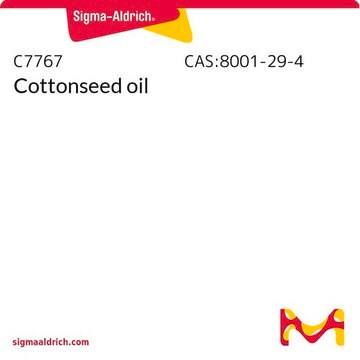X0379
Xanthohumol
powder, ≥96% (HPLC)
Synonym(s):
(E)-1-[2,4-Dihydroxy-6-methoxy-3-(3-methyl-2-butenyl)phenyl]-3-(4-hydroxyphenyl)propenone, 2′,4,4′-Trihydroxy-6′-methoxy-3′-prenylchalcone
About This Item
Recommended Products
product name
Xanthohumol from hop (Humulus lupulus), ≥96% (HPLC)
biological source
plant (Humulus lupulus)
Quality Level
Assay
≥96% (HPLC)
form
powder
mp
172 °C
solubility
ethanol: 10 mg/mL
storage temp.
2-8°C
SMILES string
COc1cc(O)c(C\C=C(/C)C)c(O)c1C(=O)\C=C\c2ccc(O)cc2
InChI
1S/C21H22O5/c1-13(2)4-10-16-18(24)12-19(26-3)20(21(16)25)17(23)11-7-14-5-8-15(22)9-6-14/h4-9,11-12,22,24-25H,10H2,1-3H3/b11-7+
InChI key
ORXQGKIUCDPEAJ-YRNVUSSQSA-N
General description
Application
- to treat glioblastoma cells to test its effect on inducing apoptosis
- to test its protective effect in renal ischemia/reperfusion (I/R) injury
- as a component of Dulbecco′s modified Eagle medium (DMEM) to test its antiviral activity in Huh7.5 cells infected with hepatitis C virus cell culture (HCVcc) system
Biochem/physiol Actions
Storage Class Code
11 - Combustible Solids
WGK
WGK 3
Flash Point(F)
Not applicable
Flash Point(C)
Not applicable
Personal Protective Equipment
Certificates of Analysis (COA)
Search for Certificates of Analysis (COA) by entering the products Lot/Batch Number. Lot and Batch Numbers can be found on a product’s label following the words ‘Lot’ or ‘Batch’.
Already Own This Product?
Find documentation for the products that you have recently purchased in the Document Library.
Articles
Chronic inflammation is an underlying factor in the development and progression of many of the chronic diseases of aging, such as arthritis, atherosclerosis, diabetes, and cancer.
Our team of scientists has experience in all areas of research including Life Science, Material Science, Chemical Synthesis, Chromatography, Analytical and many others.
Contact Technical Service






